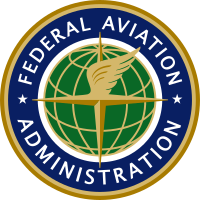U.S. FAA chief to
testify at Senate hearing on Boeing 737 MAX
 WASHINGTON (Reuters) - U.S. Federal Aviation Administration chief Steve Dickson will testify June 17 before a U.S. Senate panel on certification of the Boeing The Senate Commerce Committee said Dickson "will testify about issues associated with the design, development, certification, and operation" of the MAX that has been grounded since March 2019. The FAA's long-standing practice of delegating certification tasks to Boeing employees for the MAX has come under withering criticism. Reuters has reported the FAA is not expected to grant approval to allow the MAX to resume flights until August at the earliest. A House Transportation Committee in March called the FAA's certification review of the 737 MAX "grossly insufficient" and said the agency had failed in its duty to identify key safety problems. The U.S. Transportation Department's inspector general is expected to soon release a fact-finding report into the plane's certification, but make no recommendations. Boeing, which resumed production of the MAX last week at a very low rate, did not comment. Senate Commerce chairman Roger Wicker introduced legislation Tuesday to require FAA to review assumptions regarding pilot reaction time and reform its certification processes to "eliminate instances of undue pressure or 'regulatory coziness' that could lead to lapses in safety protocols." In January, Boeing released hundreds of internal messages containing harshly critical comments about MAX's development. One said the plane was "designed by clowns who in turn are supervised by monkeys." The messages showed attempts to duck regulatory scrutiny with employees disparaging the plane, the company and FAA. The U.S. Justice Department has been conducting a criminal investigation into the 737 MAX. The FAA said last month it would require Boeing and other aircraft manufacturers to adopt new safety-management tools. DUBLIN - Aircraft leasing firm SMBC Aviation Capital has deferred the delivery of 68 of Boeing's grounded 737 MAX jet until 2025-2027, it said in its annual results on Tuesday. Dublin-based SMBC, which has 133 of the aircraft on order, did not provide further details of its new delivery schedule. Boeing's best-selling plane was grounded in March 2019 after two crashes which killed 346 people. While the jetmaker resumed production of the MAX last week, a number of orders have been cancelled or deferred in the wake of the COVID-19 pandemic. Aircraft leasing firms, which together control over 40% of the global passenger fleet, are among the largest customers of the MAX and several have cancelled or deferred orders since the start of the pandemic. Aercap, the world's largest lessor, last month said it had obtained the deferral of deliveries of dozens of MAX jets and said it could cancel some orders. Leasing firm Avolon in April announced the cancellation of 75 MAX jets that were due to be delivered by 2023. SMBC said in its annual results that it was well positioned to weather the disruption to global air travel caused by the pandemic. The firm, which is owned by a consortium including Japan's Sumitomo Corp and Sumitomo Mitsui Financial Group, said it has $10.6 billion in support from its shareholders. That includes $2.9 billion of equity and $7.7 billion debt financing of which $3.2 billion was undrawn as at March 31, it said. It said it had $6.3 billion of available liquidity at the end of March. The firm reported a record profit before tax of $364.5 million for the year to March 31, up almost 5.8%. TUI and Boeing reach a comprehensive agreement to resolve 737 MAX grounding impacts
TUI and Boeing have agreed on a comprehensive package of measures to offset the consequences of the grounding of the 737 MAX. While the details of the agreement are confidential, it provides compensation which covers a significant portion of the financial impact, as well as credits for future aircraft orders.
The compensation will be realised over the next two years. In addition, both parties have agreed to a revised delivery schedule for the 61 737 MAX aircraft on order, meaning that TUI will get fewer 737 MAX deliveries from Boeing than previously planned in the next several years. The associated payment schedules have been adapted accordingly.
As a result of this less than half of the originally planned 737 MAX aircraft will be delivered to TUI in the next two years. On average, compared with the original scheduling, the 737 MAX deliveries will be delayed by approximately two years. This will significantly reduce TUI’s capital and financing requirements for aircraft in the coming years and supports TUI’s plan to reduce the size of the fleet of its five European airlines in the wake of the Corona crisis. It was agreed not to disclose the financial details of the agreement.
Fritz Joussen, CEO of TUI Group, commented on the agreement with Boeing: “We have reached a fair agreement that strengthens our long-standing relationship with Boeing. The agreement provides TUI with compensation for a large part of costs that were incurred due to the grounding of the 737 MAX. The new delivery schedule gives us considerable flexibility because we will have fewer new aircraft delivered in the next years. This enables TUI to rapidly adapt its fleet growth to the currently challenging market environment. And it supports our plan to downsize the aircraft fleet and reduce the capital requirements for aircraft investments in the Group.”
In March 2019, a worldwide flight ban was imposed on the 737 MAX, which also had an impact on the operations and fleet renewal plans of TUI Airlines. At the time of decommissioning, TUI´s airlines had 15 737 MAX aircraft in their fleets, with eight more scheduled for delivery in 2019. With its five airlines in Germany, the UK, Belgium, the Netherlands and Sweden, TUI is one of Boeing’s largest European customers for the 737 family.
|
onsdag 3. juni 2020
MAX oppdatering - Curt Lewis
Abonner på:
Legg inn kommentarer (Atom)



Ingen kommentarer:
Legg inn en kommentar
Merk: Bare medlemmer av denne bloggen kan legge inn en kommentar.